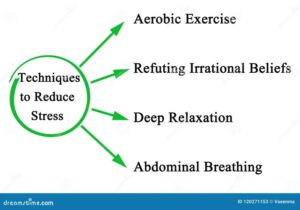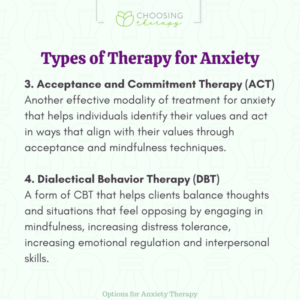
Allergy medication, the unsung hero in the battle against the sneeze-attack ninjas lurking in every bloom and dust mote! If you’ve ever found yourself on a thrilling quest for relief from those pesky sniffles and itchy eyes, you’re not alone. From antihistamines that have you feeling like a superhero to nasal sprays that might just make you feel like a tornado, the world of allergy relief is as diverse as it is dizzying.
Let’s dive into the colorful spectrum of allergy medications, exploring how these little pills and potions work their magic, their side effects (because nothing is perfect, right?), and how they fit into the grand scheme of our health and wellness. Whether you’re a chronic sneezer or just dabbling in the world of allergies, there’s something here for everyone!
Allergy Medication Overview
Allergy medications can be a real lifesaver for those who find their everyday life disrupted by pesky allergens. Whether it’s pollen, dust, or pet dander, there’s a pill or syrup that promises to ease your suffering and keep you from transforming into a sneezing, itchy-eyed mess. Understanding the various types of allergy medications available, how they work, and their potential side effects can empower you to breathe easier and tackle allergy season like a pro.
Types of Allergy Medications
Allergy medications come in several varieties, each with its unique superhero powers to combat allergy symptoms. Here’s a look at the most common types and how they save the day:
- Antihistamines: These little warriors block histamine, the culprit behind those annoying allergy symptoms. They come in two flavors: first-generation (like Diphenhydramine) that can make you drowsy, and second-generation (like Loratadine) that lets you stay awake while stopping the sniffles. They work by binding to histamine receptors, preventing the allergic response, allowing you to enjoy life without sounding like a foghorn.
- Decongestants: Perfect for those moments when you feel like your nose is hosting a family reunion of congestion. Decongestants like Pseudoephedrine work by shrinking swollen blood vessels in the nasal passages. Think of them as the bouncers at a club, keeping unwanted guests (like mucus) out!
- Corticosteroids: Powerful anti-inflammatories that reduce swelling and irritation. These are like your personal bodyguards for your nasal passages, perfect for chronic allergy sufferers. Nasal sprays like Fluticasone are common and can help keep the sneezes at bay by battling inflammation directly where it happens.
- Leukotriene Receptor Antagonists: These medications, such as Montelukast, block leukotrienes, which are chemicals that can contribute to inflammation and mucus production. Think of leukotrienes as the annoying group of friends that just won’t leave the party – until Montelukast shows up to escort them out.
Potential Side Effects and Interactions
While allergy medications are generally safe, they can have side effects that range from mildly annoying to downright inconvenient. It’s important to be aware of these when you’re gearing up to tackle allergy season.
- Antihistamines: Side effects may include drowsiness, dry mouth, and dizziness. It’s best to check your labels and choose wisely, especially if you plan to operate heavy machinery (or, you know, just your car).
- Decongestants: They can cause increased heart rate, insomnia, and even high blood pressure in some people. If you find yourself bouncing off the walls at 3 AM, it might be time to consider a less stimulating option.
- Corticosteroids: Prolonged use can lead to nosebleeds, irritation, or even infections in some cases. Always follow the instructions on your nasal spray and consult with a doctor if you feel like you’re developing a nasal disco.
- Leukotriene Receptor Antagonists: These may cause headaches, stomach pain, and mood changes. If you start feeling like you’re auditioning for a soap opera, contact your healthcare provider.
“Knowledge is power: knowing what your allergy meds can do – and what they can’t – is the first step toward conquering allergens.”
Health and Allergies
Allergies are not just an inconvenience; they can turn your life into a sneezy, itchy, and somewhat dramatic soap opera. From making you feel like a walking allergy commercial to turning your favorite outdoor activities into an epic battle against pollen, these pesky reactions can significantly impact your overall health and well-being. Understanding them is crucial, especially as we learn how to manage our lives with allergies in tow.Allergies can lead to a multitude of health complications, ranging from mild annoyances to serious conditions such as asthma or even anaphylaxis.
When the immune system overreacts to harmless substances, it can create a ripple effect that impacts sleep, mood, and even productivity. The constant cycle of sneezing, coughing, and fatigue can lead to a decreased quality of life, making it essential to address not only the symptoms but also the underlying lifestyle choices that influence how we cope with allergies.
Lifestyle Changes for Allergy Management
Adopting a proactive approach to managing allergies often involves a few lifestyle adjustments, which can be as refreshing as a cool breeze on a hot summer day. Some changes can minimize exposure to allergens and improve overall wellness. Below are some strategies that can help keep those allergies at bay:
- Indoor Air Quality: Keep windows closed during high pollen seasons and invest in an air purifier. Consider adding some houseplants that filter air impurities—bonus points if they’re low maintenance, because who has time for fussy flora?
- Diet Adjustments: Certain foods can exacerbate allergic reactions. Incorporating anti-inflammatory foods like ginger, turmeric, and omega-3 rich fish can boost your immune system. Just remember, a salad a day might keep the sneezes away!
- Regular Cleaning: Dust bunnies might be cute, but they harbor allergens like a five-star hotel. Vacuum regularly, wash bedding in hot water, and keep surfaces clear to reduce dust mites and other irritants.
- Outdoor Timing: Plan outdoor activities for early mornings or after rain when pollen counts are lower. It’s like scheduling a date with nature, but with fewer sneezes involved!
Natural Remedies and Alternative Treatments
For those seeking relief without relying solely on over-the-counter medications, there are plenty of natural remedies that can provide a little extra relief. Knowing what’s available can help you feel like an allergy-fighting superhero with an arsenal of options at your disposal:
- Local Honey: A spoonful of local honey may help build immunity to local pollen. The theory is that by consuming small quantities, you can train your immune system to be less reactive. Plus, it’s sweet enough to make you feel like a kid again!
- Nasal Irrigation: Rinsing your sinuses with saline solutions can flush out allergens, helping you breathe easier. Think of it as a spa day for your nose—refreshing and rejuvenating!
- Herbal Supplements: Butterbur and quercetin are popular choices among natural allergy relief enthusiasts. Just remember to consult with a healthcare provider before diving into the herbal world!
- Acupuncture: Some studies suggest that acupuncture may alleviate allergy symptoms. It’s like giving your immune system a little nudge without the need for pills—just make sure your acupuncturist knows what they’re doing!
Related Health Topics

When allergies come knocking on your door, they often bring some unwanted friends along, like anxiety and a host of alternative therapies eager to help. Let’s dive into the curious connections between allergies and anxiety disorders, explore how acupuncture can be your new best buddy in battling those pesky sniffles, and see how traditional treatments stack up against the fragrant world of aromatherapy.
Connection Between Allergies and Anxiety Disorders
Allergies and anxiety disorders have a surprisingly close relationship, akin to two roommates who share a really small apartment. Research has shown that individuals with allergies are at an increased risk of developing anxiety disorders. Allergic reactions can lead to physical symptoms like shortness of breath, which can mimic panic attacks, causing those already prone to anxiety to spiral into worry.
This connection creates a feedback loop where anxiety can exacerbate allergic symptoms and vice versa.
“The body’s reaction to allergens can trigger a cascade of anxiety, making it a challenge for individuals to feel at ease.”
In a study, it was noted that over 30% of people with allergies also reported symptoms of anxiety. This phenomenon is thought to be driven by both the physiological effects of allergies and the mental toll they take. Imagine trying to enjoy a sunny day while sneezing uncontrollably – not the best scenario for a calm and collected mindset!
Acupuncture for Allergy Symptoms
Acupuncture, often depicted as a soothing experience involving needles and serenity, has shown promise in alleviating allergy symptoms. This ancient practice is believed to work by stimulating specific points on the body to promote the flow of Qi (energy) and reduce inflammation.Acupuncture’s potential benefits for allergic individuals include:
- Reducing nasal congestion and improving airflow, allowing allergy sufferers to breathe easier than a toddler after a nap.
- Alleviating itchy eyes, making you less likely to resemble a raccoon with a bad case of the sniffles.
- Calming the immune system’s overreaction to allergens, which can be a game-changer for seasonal allergy warriors.
Several studies have reported positive outcomes, with participants experiencing a significant reduction in allergy symptoms after a series of acupuncture sessions. It’s like giving your immune system a pep talk while simultaneously enjoying a moment of zen.
Comparison of Traditional Allergy Treatments with Alternative Therapies Like Aromatherapy
In the great debate of traditional allergy treatments versus alternative therapies, aromatherapy has emerged as a fragrant contender. Traditional allergy treatments often include antihistamines and steroids, designed to tackle symptoms head-on. However, these can come with side effects that leave you feeling drowsy or a bit like a zombie from your favorite horror flick.Aromatherapy, on the other hand, taps into the power of essential oils to provide relief.
Here’s how they compare:
| Traditional Treatments | Aromatherapy |
|---|---|
| Quick relief from symptoms like sneezing and runny nose. | Holistic approach, promoting overall well-being and relaxation. |
| Can cause drowsiness or other side effects. | Generally safe with minimal side effects; just make sure not to attempt a yoga pose while inhaling eucalyptus. |
| Targeted for specific symptoms. | Can enhance mood and reduce stress, addressing anxiety, which is often tied to allergies. |
Aromatherapy might not replace your trusty antihistamines, but it can be an excellent complement, helping you fight those allergies with a delightful scent and a side of calmness. Imagine floating through your day, surrounded by the soothing aroma of lavender while your allergies take a backseat. Sounds blissful, doesn’t it?
Final Conclusion

In summary, allergy medication is your trusty sidekick in the epic showdown against allergens. We’ve explored the ins and outs of these medications, their potential side effects, and how they can significantly impact your overall health. From lifestyle tweaks to alternative remedies, you now have a toolbox full of strategies to tackle those allergy-filled days. So go ahead, embrace the sneeze-free life and let the adventures begin!
FAQ Guide
What are the main types of allergy medications?
The main types include antihistamines, decongestants, nasal corticosteroids, and leukotriene receptor antagonists, each with unique functions to tackle different symptoms.
Can I take multiple allergy medications at once?
While some combinations are safe, it’s always best to consult a healthcare professional to avoid any potential interactions!
Are there any natural alternatives to allergy medications?
Yes! Options like butterbur, local honey, and saline sprays offer natural ways to ease symptoms, but always check with your doctor first.
How long does it take for allergy medications to work?
It varies by medication, but many antihistamines kick in within an hour, while nasal sprays may take a few days for maximum effect.
Do allergy medications cause drowsiness?
Some antihistamines can indeed cause drowsiness, so it’s wise to read labels and choose non-drowsy formulas if you need to stay alert!





